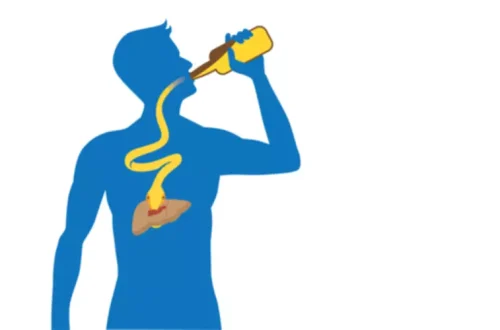At each of AAC’s treatment centers, a caring and compassionate addiction treatment team develops an individualized treatment plan for your loved one based on their needs. To learn more about the rehabilitation services we offer, visit our addiction treatment centers page. NIAAA cannot endorse any treatment providers nor be responsible for the options ultimately chosen. The NIAAA Alcohol Treatment Navigator® cannot ensure that the search process will deliver higher-quality treatment providers in your vicinity who are using evidence-based approaches.

There may also be recovery resources available in your community. Remember that relapse is part of recovery for many individuals, and your loved one may be one of them. Instead, relapse indicates that additional and/or a different form of treatment is necessary. If you are seeking treatment for yourself, you are taking an important step in your route to recovery.
How do behavioral therapies treat drug addiction?
In this section, learn more about AUD, the professional treatment options available, and why different people may take different routes to recovery. If your pattern of drinking results in repeated significant distress and problems functioning in your daily life, you likely have alcohol use disorder. However, even a mild disorder can escalate and lead to serious problems, so early treatment is important. Self-guided programs such as these can be added to an overall treatment plan led by a health care professional. The one that’s right for you depends on your situation and your goals. Many people find that a combination of treatments works best, and you can get them together through a program.
Some people just need a short, focused counseling session. Others may want one-on-one therapy for a longer time to deal with issues like anxiety or depression. Alcohol use can have a big effect on the people close to you, so couples or family therapy can help, too.
Helping Someone with a Drug Addiction
Choose the right time to have this important conversation. Have the conversation in a place where you know you’ll have quiet and privacy. You’ll also want to avoid any interruptions so that you both have each other’s full attention. Make sure your person is not upset or preoccupied with other issues.
Your healthcare provider can help you evaluate the pros and cons of each. If you have any of these symptoms, your drinking may already be a cause for concern. The more symptoms you have, the more urgent the https://ecosoberhouse.com/ need for change. A health professional can conduct a formal assessment of your symptoms to see if AUD is present. For an online assessment of your drinking pattern, go to RethinkingDrinking.niaaa.nih.gov.
SAMHSA’s National Helpline
Dependency is often accompanied by certain mood or mental health conditions like depression or anxiety. Along with your treatment for AUD, you may need to seek medical care for other complications you experience. Recovery can take a long time, so you may need ongoing treatment. Instead, these are groups of people who have alcohol use disorder.
- The condition can range from mild to severe and is diagnosed when a patient answers “yes” to two or more of the following questions.
- These tips can help you get started on the road to recovery.
- Another analysis of the data found that the drug was effective at significantly reducing alcohol intake–but only in the participants who qualified as obese.
- Learn ways to compare the quality of your options and make the best choice for your situation.
Depending on the severity of your addiction, residential treatment may last at least a month and up to several months. Intensive inpatient service often takes place in a hospital setting, where attentive medical staff are available around the clock to monitor your health and care for your immediate needs. In outpatient programs, you return home at the end of a session. This allows you to maintain more daily independence and gives you an opportunity to practice your newly learned coping skills in your home environment.
Our addiction medicine care teams can help members with severe SUD stop drinking or using drugs safely and comfortably. This doesn’t treat SUD, but it’s an important first step toward recovery for the members who need it. A Booklet for Families
Created for family members of people with alcohol abuse or drug abuse problems. Answers questions about substance abuse, its symptoms, different types of treatment, and recovery. Addresses concerns of children of parents with substance use/abuse problems.
- Counseling can help members with SUD explore the reasons behind their drug or alcohol use and come up with new, healthy coping strategies.
- Specific details can vary, but programs typically involve a combination of individual and group therapy, educational sessions, and self-help and peer support meetings.
- Make meetings a priority – Join a recovery support group, such as Alcoholics Anonymous (AA), and attend meetings regularly.
- In 2011, researchers in India found that a drug called liraglutide, a GLP-1 receptor used to treat diabetes, significantly reduced alcohol intake in a small group of patients.
- It’s appropriate in instances when your body has become physiologically dependent on alcohol and safely discontinuing use requires medical supervision.
It can be especially effective for members who also have a mental health condition, or who started using to deal with distressing emotions, trauma, or excessive stress. We offer individual and group therapy for all our https://ecosoberhouse.com/article/alcohol-help-now-where-to-get-help-for-alcohol-addiction/ members. Call your local mental health or addiction medicine department or reach out to your personal doctor. When alcoholism affects a spouse or partner, it’s possible to become too wrapped up in their well-being.
Long-term outlook for alcohol use disorder
The Navigator helps adults find alcohol treatment for themselves or an adult loved one. If you are seeking help for a teen, check out these recommended adolescent treatment resources. Find board-certified addiction psychiatrists for mental health care. See the Navigator’s summary of five signs of quality alcohol treatment. See 10 recommended questions to ask therapists in Step 2.


